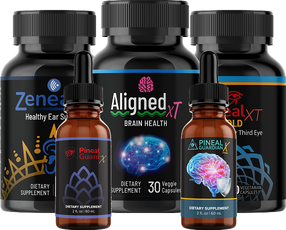The Most Toxic thing for Brain Health is Sugar: Fact or Fiction?

You have likely heard that sugar is a deadly, toxic poison, one of most damaging things you can ingest for your overall health with a potentially detrimental impact on your brain function too.
But is that actually the truth?
What do you think about sugar? Reply back to me.
The surprising reality is that sugar is crucial for healthy brain function, BUT before you reach for a snickers bar, let me add that there is some key nuances there that is important to understand.
So we need to delve into this topic with an understanding of the difference between blood sugar and dietary sugar. They are not the same thing.
Dietary sugar: Includes sucrose, fructose, lactose occurring naturally in foods, as well as sugar that is added to concentrated fruit juice, syrups etc.
Blood Sugar: A measurement of blood glucose levels which can be influenced by dietary sugar and your overall diet, as well as your lifestyle habits such has exercise, stress levels and sleep quality.
What is the Influence of Dietary Sugar on your Brain?

Imagine you have just eaten a meal rich in carbohydrates or added sugars that are quickly digested, your blood sugar levels are likely to shoot up much faster than if you enjoyed a meal packed with fiber rich vegetables or whole grains, or a piece of organic meat.
That’s basically how dietary sugar links to blood sugar in your body.
Truthfully though, short term any one meal, even a super sugary one, is not going to have a big impact on your brain function immediately. What’s more likely to happen is that over time, having a diet pattern that focuses heavily on added sugars can be damaging for the brain.
This is especially true for a diet rich in sugar-sweetened sodas or other beverages, these are linked to depression, dementia, and a higher risk of stroke.
Foods with added sugars are also a key component of the ultra-processed “Western diet,” which is linked to higher risk for dementia, and recently has been found to disrupt multiple aspects of brain function in animals.
How Does Blood Sugar Influence your Brain?

Our bodies run on glucose, it is literally metabolic fuel required for us to function properly. The same goes for our brains. As we age, our brains may find it harder to access glucose, something that is particularly the case in Alzheimer’s disease, often labeled as type 3 diabetes for this very reason.
Having issues with the way your body regulates blood sugar are linked to a higher risk for brain conditions. People who suffer from type 2 diabetes may have an increased risk for dementia and insulin resistance is linked to a decline in brain cognition, as well as a host of other health issues.
The Bottom Line
Spiking blood sugar or glucose levels are very detrimental to our brains. High blood sugar levels can lead to insulin resistance, which makes it harder for the brain to access glucose. They are also linked to inflammation which is associated with depression, dementia and other diseases.
So, when we talk about sugar being good for our brains, what we mean is that balanced BLOOD SUGAR is key.
It’s super important to maintain pretty stable blood sugar levels, that is your number one strategy for protecting your brain health.
Side note- it’s also a great weight-loss strategy too! Win Win!
For most people, following a diet rich in whole, natural foods, minimizing processed foods, and eating lots of fiber is key. Add to that a good handle on stress and great sleep, plus exercise and you’re on your way to lasting health.




